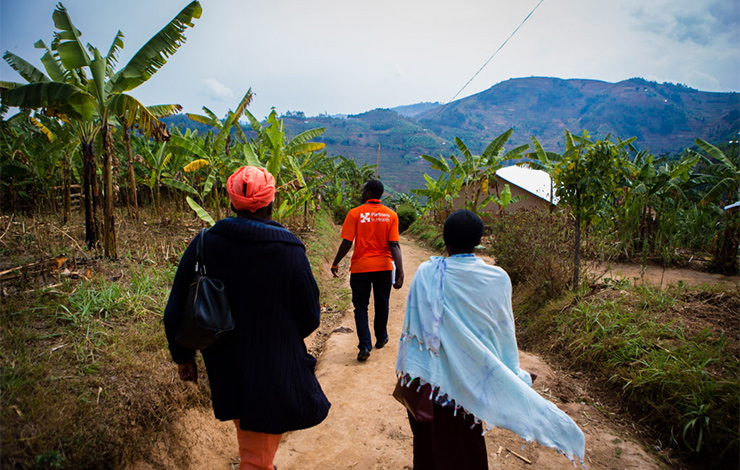In the Central Plateau of Haiti, farmers generally do not possess valid legal documents that demonstrate ownership of their land, hindering their ability to secure credit and threatening food security. Zanmi Lasante established a team of local agents and legal practitioners to assist farmers in the land registration process, allowing them to access microcredit and supplies for water and food management, and changing attitudes with respect to formal land registration.
Challenge

The Central Plateau of Haiti suffers from chronic food insecurity. In the absence of registries and records, farmers often hold their land on the basis of notoriety or common community agreement, and do not have a legal title document to provide evidence of their rights. Without proof of land holding, they are unable to use their most important asset to support credit or purchase the supplies needed to increase yield. As a result, farmers are unable to support their families with a living wage. In addition, severe water and food shortages are endemic and ultimately force the rural population to seek sustenance elsewhere, primarily in the shantytowns of Haiti's capital, Port-au-Prince.
Program Summary
The program worked with a small community of farmers whose challenges were representative of the larger region. First, the program determined the legal basis of the land holding rights of a representative group of farmers, while also devising a means for the farmers to obtain certification under Haitian law that was compatible with local customs and practices. Next, the program made water management improvements available to farmers through microcredit and other credit facilities available to poor farming families.
Impact
The Land Rights for Peasant Farmers in the Central Plateau of Haiti program profoundly changed attitudes amongst farmers with respect to formal land registration. It was able to establish property rights as a priority, both for obtaining credit and improving water and food management systems. In addition, a plan was devised for building a team of local agents and legal practitioners to assist farmers in the registration process.
Partners
As a result of the project, the local association of graduates of the International Development Law Organization expressed an interest in assisting the program make future registration activities are successful. The project also attracted the interest of government advisors, particularly in the Ministry of Finance, who are working to find a solution to the situation of the state tenants.


